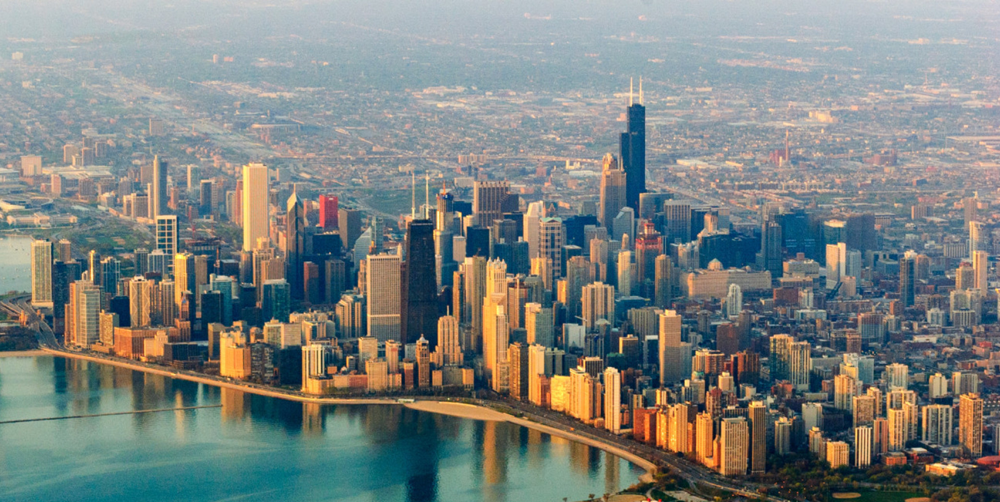The HVAC System Landscape in Chicago

Introduction
The Chicago town, is known for its diverse climate, experiencing hot summers and cold winters. In such a dynamic environment, the role of HVAC (Heating, Ventilation, and Air Conditioning) systems becomes paramount. This article delves into the intricacies of HVAC systems in Chicago, exploring the challenges posed by the city's weather, the innovations in HVAC technology, and the impact on energy efficiency.
Understanding Chicago's Climate
Seasonal Extremes
Chicago's climate is characterized by extremes. Summers can bring sweltering heat, with temperatures soaring well into the 90s Fahrenheit. Winters, on the other hand, are harsh, with temperatures often dropping below freezing and heavy snowfall not being uncommon. These climatic variations necessitate HVAC systems that can adapt to the changing demands throughout the year.
Humidity Management
Another critical factor in Chicago's climate is humidity. Summers can be muggy, requiring effective dehumidification to ensure indoor comfort. In contrast, winters can be dry, necessitating humidification to prevent discomfort and health issues associated with dry air.
Challenges in HVAC Systems
Energy Efficiency
The extreme temperature fluctuations in Chicago pose a significant challenge to maintaining energy-efficient HVAC systems. The constant need for both heating and cooling throughout the year can lead to increased energy consumption if systems are not optimized.
Maintenance in Extreme Weather
The HVAC systems in Chicago are subjected to rigorous use, especially during the peak of summer and winter. This places a strain on the equipment and underscores the importance of regular maintenance to ensure optimal performance. Neglecting maintenance can result in system failures, higher energy bills, and discomfort for occupants.
Air Quality Concerns
The city's urban environment introduces additional challenges related to air quality. HVAC systems must not only regulate temperature but also filter pollutants to maintain healthy indoor air quality. Addressing this challenge is crucial, considering the impact of air pollution on respiratory health.
Innovations in HVAC Technology
Smart HVAC Systems
Advancements in technology have given rise to smart HVAC systems that can adapt to changing conditions in real-time. These systems utilize sensors and automation to optimize energy usage, providing a more sustainable solution for the variable climate of Chicago.
Energy Recovery Ventilation
To address the energy efficiency challenge, many modern HVAC systems in Chicago incorporate energy recovery ventilation (ERV). ERV systems recover and reuse heat or coolness from the exhaust air to precondition the incoming air, reducing the overall energy required for heating or cooling.
Air Purification Technologies
Given the concerns about air quality, HVAC systems are increasingly integrating advanced air purification technologies. These technologies, such as UV-C light and HEPA filters, can significantly reduce the presence of pollutants and allergens in indoor spaces.
Regulatory Landscape
Energy Efficiency Standards
In response to the challenges posed by climate extremes, the city of Chicago has implemented stringent energy efficiency standards for HVAC systems. This includes requirements for system efficiency ratings and the use of eco-friendly refrigerants, contributing to the city's commitment to sustainability.
Building Codes and Permits
Chicago's building codes and permitting processes play a crucial role in shaping the HVAC landscape. Compliance with codes ensures that HVAC systems meet safety, efficiency, and environmental standards, emphasizing the importance of professional installation and maintenance.
HVAC Trends and Best Practices
Zoned HVAC Systems
Zoned HVAC systems have gained popularity in Chicago due to their ability to provide targeted heating and cooling to specific areas of a building. This not only enhances comfort but also contributes to energy savings by avoiding the unnecessary conditioning of unoccupied spaces.
Regular Maintenance Programs
To overcome the challenges posed by extreme weather and ensure the longevity of HVAC systems, many businesses and homeowners in Chicago are adopting regular maintenance programs. These programs involve scheduled inspections, cleaning, and adjustments to keep the systems running efficiently.
Renewable Energy Integration
As part of the broader sustainability movement, some forward-thinking buildings in Chicago are incorporating renewable energy sources to power their HVAC systems. Solar panels, in particular, are becoming a common sight on rooftops, contributing to a reduction in the carbon footprint of HVAC operations.
Conclusion
The HVAC system landscape in Chicago is a dynamic and ever-evolving field. The challenges presented by the city's climate have spurred innovations in technology, changes in regulations, and a growing emphasis on sustainability. As the demand for efficient and climate-responsive HVAC systems continues to rise, Chicago remains at the forefront of adopting and promoting solutions that not only enhance comfort but also contribute to a greener and healthier urban environment. Whether it's battling the summer heatwaves or braving the winter cold, the HVAC systems in Chicago play a crucial role in ensuring that residents and businesses alike can thrive in the face of the city's climatic challenges.